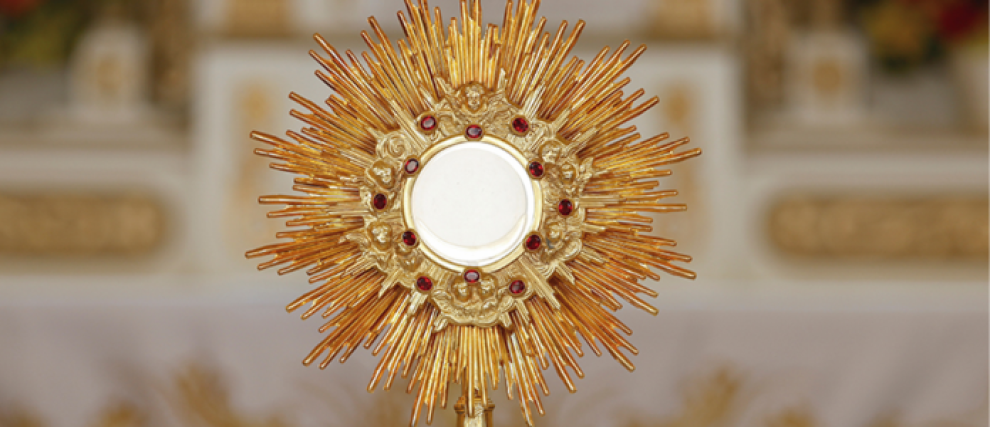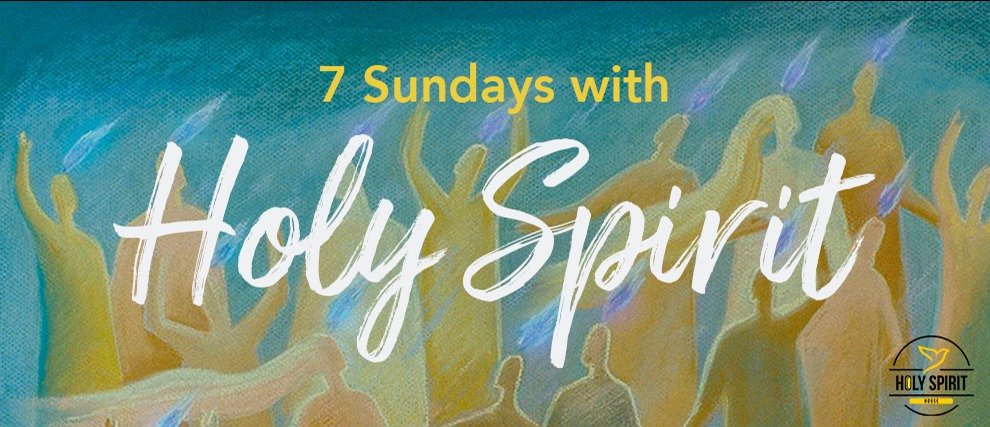Feast of Corpus Christi: Origin and Meaning, Celebration, Devotion, Prayers
The Feast of the Blessed Sacrament—called the Solemnity of the Most Holy Body and Blood of Christ by the Church—takes place on the second Sunday after Pentecost, and celebrates the real presence of Jesus Christ in the sacrament of the Eucharist. Commonly called Corpus Christi, its origins date back to the Middle Ages, when the tradition was to carry out large street processions displaying the Blessed Sacrament.
Deepen your knowledge of the mystery of the Eucharist through online prayer communities:
Origin and significance of the feast of Corpus Christi
History of the feast of Corpus Christi
The feast of Corpus Christi owes its existence to two personalities of the thirteenth century: Saint Juliana of Cornillon and Blessed Eve of Liège, who worked jointly for the establishment of a solemn feast, following visions that Saint Juliana had.
In 1264, under the pontificate of Pope Urban IV, the feast of the Blessed Sacrament was instituted in the universal Church, under the name of the feast of Corpus Christi or feast of the Blessed Sacrament. The Eucharistic miracle of Bolsene a year earlier greatly influenced the institution of this celebration.
It was in 1318 that the first street procession appeared: Pope John XXII ordered a public procession in the city displaying the Blessed Sacrament on the monstrance. The popular fervor then spread through the West. Today, it is still very present in Italy or Spain, as well as in the French villages of the Basque country.
Solemnity of the Most Holy Body and Blood of Christ
Today, called the “Solemnity of the Most Holy Body and Blood of Christ”, Corpus Christi celebrates the institution of the sacrament of the Eucharist and the real presence of Christ through the consecrated bread and wine.
This feast day is a call for Christians to deepen their understanding of the meaning of the Eucharist, “source and summit of all Christian life” (CCC, 1324) in which God gives himself to us as “bread of life” for eternal life.
In his homily of June 3, 2018, Monsignor Aupetit recalls the deep meaning of the sacrament of the Eucharist: “The Body and Blood of Jesus are the sign, no longer symbolic, but real, of the union of God and men in Jesus Christ who is True God and True Man. The sacrament is the effective sign of the Life of God that enters into man: “He who eats of my flesh and drinks of my blood has eternal life.”
Celebration and traditions of Corpus Christi
Liturgy of the feast of Corpus Christi
The Solemnity of the Most Holy Body and Blood of Christ is celebrated during a Mass with liturgy specific to this day.
Thus, the service is celebrated with white ornaments; the texts read reveal to us various aspects of the Eucharistic mystery and the prayers emphasize the richness of this sacrament. It is customary, during the Mass, to take communion of the body and blood of Christ.
Finally, the first communion is often carried out on the day of the Feast of the Blessed Sacrament.
The procession of the Blessed Sacrament during Corpus Christi
Corpus Christi has long been one of the most popular feasts of the Christian people, who publicly profess their faith through large processions of the Blessed Sacrament.
Even today, it is a public holiday in many countries of Catholic tradition, and gives rise to many street processions. The officiant of the celebration carries the Blessed Sacrament in a monstrance, sheltered under a canopy carried by four people, and circulates in the streets of the city, which are often decorated with draperies or flowering altars. A large procession follows, singing songs and hymns.
The procession is often opened by children, loaded with baskets of petals of flowers, lining the ground as the priest passes by. Finally, the procession is punctuated by several “stations” allowing the priest to bless the crowd.
Devotion to the Blessed Sacrament
The fruits of the sacrament of the Eucharist
Saint Thomas Aquinas, Father of the Church and great theologian, described how, through devotion to the Blessed Sacrament, Christ pours his grace into our lives. Here's what he teaches us:
- The consecrated bread is the true food of the soul, which renews the life of grace received at baptism;
- Through communion, we are united with Christ spiritually, but also physically;
- The Eucharist brings us into the divine life of God in order to sanctify ourselves;
- By giving himself to us in his body and blood, Christ assures us of eternal life.
Prayer on the feast of Corpus Christi
“My Lord and my God, I humbly prostrate myself and adore You. I feel powerless to consider Your immense goodness, your infinite love in the Holy Host. Then I recognize myself unable to match my gratitude for this incomprehensible benefit, the more I implore You to put Yourself in my heart, the feelings that I miss. Make Your love detach me from the world and from myself, and suggest to me the words that can best express to You my desire to love You and to be, to life, to death, all to your divine Heart. Amen.”
Pray with Hozana during the feast of Corpus Christi
The Feast of the Most Holy Body and Blood of Christ celebrates the real presence of Jesus Christ in the sacrament of the Eucharist. Join the online prayer communities and retreats that Hozana offers:
- Participate in an meditating on the teachings of Father Eymard, prophet of the Eucharist.
- by the real presence of God in the Eucharist!
- Through , immerse yourself in the mystery of the sacraments to see how they allow us to live a living and intimate relationship with God.

